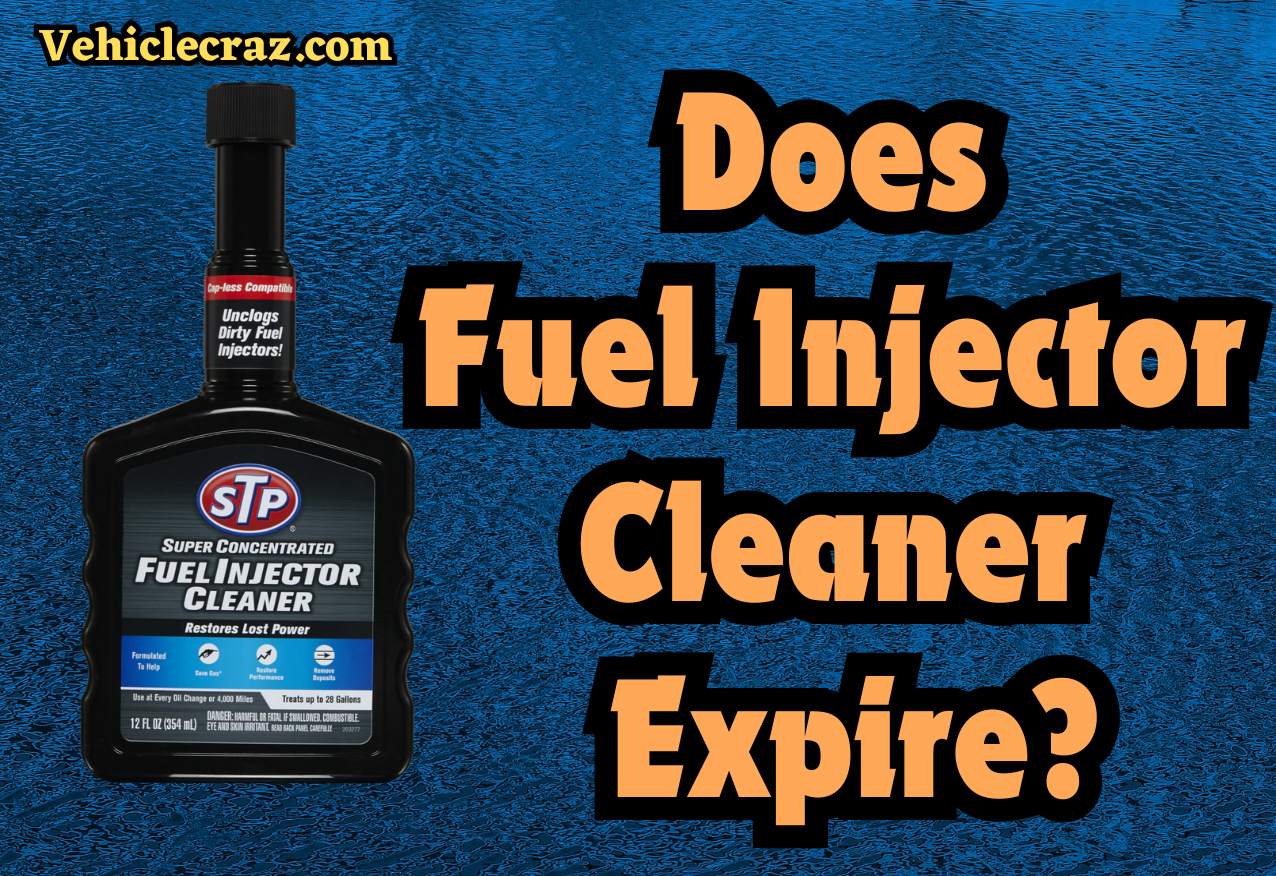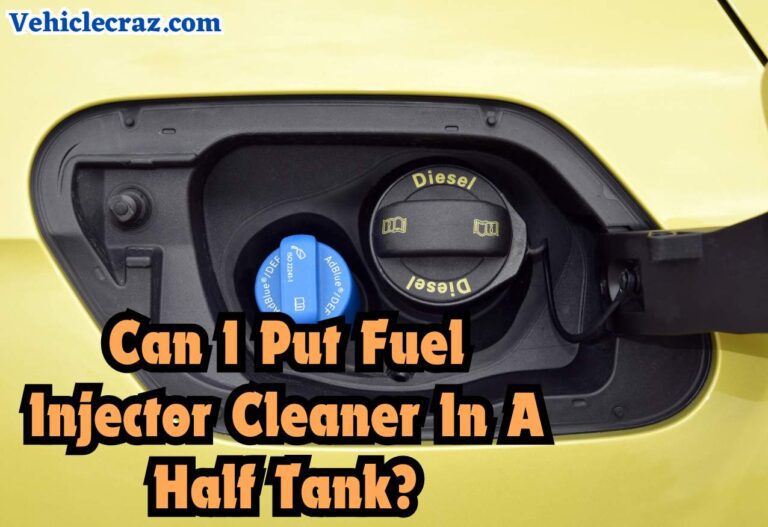Does Fuel Injector Cleaner Expire?
Does Fuel Injector Cleaner Expire? Someone might ask if fuel injector cleaner expires because they want to know if it’s safe and effective to use a product that has been sitting on their shelf for a long time. Like many automotive products, fuel injector cleaners can degrade over time.
Does Fuel Injector Cleaner Expire?
Yes, fuel injector cleaner can expire. While most fuel injector cleaners do not have a specific expiration date printed on the bottle, they can degrade over time, especially if stored improperly or if the container has been opened.
The active ingredients in fuel injector cleaner, such as detergents and solvents, can break down or evaporate over time, reducing the effectiveness of the cleaner. This can happen more quickly if the cleaner is exposed to extreme temperatures or if the container is not sealed properly.
Using expired fuel injector cleaner may not harm your engine, but it may not be as effective at cleaning the fuel system. If you have a bottle of fuel injector cleaner that has been sitting on your shelf for an extended period, it’s a good idea to check the product’s appearance and smell before using it.
If the cleaner looks cloudy or has separated into layers, or if it has a strong, off-putting odor, it may be best to dispose of it and purchase a new bottle. Using fresh fuel injector cleaner will help ensure that you get the best possible results when cleaning your fuel system.
What is The Usual Shelf Life of Fuel Injector Cleaner?
The usual shelf life of fuel injector cleaner is typically around 2 to 5 years when stored properly. The shelf life of fuel injector cleaner can vary depending on the brand and formulation.
It’s important to check the product label or manufacturer’s instructions for specific information on the shelf life of the cleaner you’re using. Some cleaners may have a shorter shelf life, especially if they contain more volatile or reactive ingredients.
Symptoms of Bad Fuel Injector Cleaner
Symptoms of bad fuel injector cleaner, or using a fuel injector cleaner that is not effective, may include:
No Improvement in Performance
One of the primary purposes of using a fuel injector cleaner is to improve engine performance. If you notice no improvement in acceleration, power, or fuel efficiency after using a cleaner, it may indicate that the cleaner is not effective.
Rough Idle or Stalling
A bad fuel injector cleaner may not effectively clean the fuel injectors, leading to rough idling or stalling, especially when the engine is cold.
Increased Emissions
If the fuel injector cleaner does not clean the injectors properly, it can lead to incomplete combustion, resulting in increased emissions from the vehicle.
Engine Misfires
Dirty fuel injectors can cause engine misfires, which may manifest as a noticeable hesitation or jerking sensation when accelerating.
Poor Fuel Efficiency
Ineffective fuel injector cleaner may not improve fuel efficiency, as it fails to clean the injectors and optimize fuel delivery.
Check Engine Light
If the cleaner does not effectively clean the injectors, it may result in a check engine light being illuminated due to issues such as misfires or fuel system problems.
Excessive Exhaust Smoke
Inefficient combustion due to dirty injectors can lead to excessive exhaust smoke, indicating that the fuel injector cleaner has not done its job effectively.
How to Extend the Shelf Life of Fuel Injector Cleaners?
To extend the shelf life of fuel injector cleaners and ensure they remain effective, follow these guidelines.
Storage Temperature
Store fuel injector cleaners in a cool, dry place away from direct sunlight and extreme temperatures. Fluctuations in temperature can degrade the effectiveness of the cleaner.
Seal Properly
Ensure the container is tightly sealed after each use to prevent evaporation of the active ingredients. Oxygen exposure can also degrade the cleaner over time.
Avoid Contamination
Keep the cleaner away from water, dirt, and other contaminants that can compromise its effectiveness. Use a clean funnel when pouring the cleaner to avoid introducing impurities.
Follow Manufacturer’s Recommendations
Use the cleaner according to the manufacturer’s instructions, including the recommended dosage and frequency of use. Overuse of the cleaner can lead to a buildup of residues in the fuel system.
Check for Expiration Date
While most fuel injector cleaners do not have a specific expiration date, it’s a good idea to check the product’s appearance and smell before use. If the cleaner looks cloudy, separated, or has a strong odor, it may be past its shelf life.
How to Store Fuel Injector Cleaners Properly?
To store fuel injector cleaners properly and maintain their effectiveness, follow these guidelines:
- Store fuel injector cleaners in a cool, dry place with temperatures between 40°F (4°C) and 90°F (32°C). Avoid storing them in areas where temperatures exceed 120°F (49°C) or fall below freezing, as extreme temperatures can degrade the cleaner.
- Keep the cleaners away from direct sunlight, as UV radiation can degrade the cleaner over time.
- Ensure the container is tightly sealed after each use to prevent evaporation of the active ingredients and contamination.
- Keep the cleaners away from water and moisture, as they can compromise the effectiveness of the cleaner.
- Store the cleaners away from dirt, dust, and other contaminants that can affect their performance. Use a clean funnel when pouring the cleaner to avoid introducing impurities.
- Always follow the manufacturer’s instructions for storing the cleaner, including any specific temperature or storage recommendations.


I’m Alex, a seasoned mechanical teacher with over 20 years of hands-on experience in Australia. My passion for all things automotive has driven me to establish this blog, aiming to share my wealth of knowledge and expertise with fellow enthusiasts, DIYers, and anyone keen on understanding the mechanics behind the machines we rely on daily.



![Coolant Not Draining From Radiator? [FIXED]](https://vehiclecraz.com/wp-content/uploads/2024/03/Maximum-Level-4-768x524.jpg)



